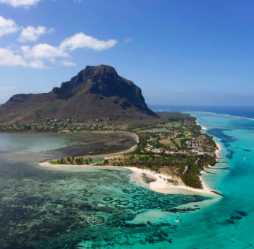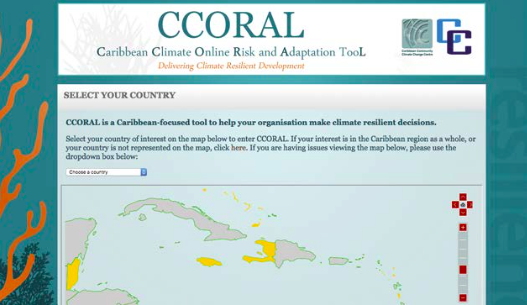Driving, connecting and communicating: The many roles of national government in climate adaptation planning

Introduction
Climate change is one of the most significant challenges to the Caribbean’s future prosperity. The impacts of climate change on economically important sectors such as tourism, agriculture and fishing threaten Caribbean nations’ ability to achieve their economic and social development goals. By 2050, the costs to the region are expected to reach US$22 bn each year; this represents 10% of regional gross domestic product, based on 2004 figures.
However, responding to climate challenges is highly complex. Climate change has cross-cutting impacts that span sectors and spatial scales, and involves multiple stakeholders. Delivering effective climate change adaptation is therefore a question of governance.
This report*explains: 1) why national governments and policy frameworks are important for effective adaptation, 2) how climate considerations can be integrated into national policies, plans and programmes, 3) how to assess and build institutional capacity for coordinating and delivering effective resilience- building programmes and, 4) how best to translate national policies into action at the local level.
*Download the full report from the right-hand column.
Methods and Tools
The report draws upon and synthesises results from three CDKN funded projects:
1. The Global Islands’ Vulnerability Research, Adaptation Policy and Development (GIVRAPD) project
- This focused on community adaptation to climate change in Jamaica and Saint Lucia.
- The project aimed to understand the multi-scale socioeconomic, governance and environmental conditions that shape vulnerability and capacity to adapt to climate change within and between small and medium-sized coastal communities.
2. The Caribbean Climate Online Risk and Adaptation Tool (CCORAL)
- This is a web-based decision-support tool aimed at policy-makers and other decision-makers, helping them to integrate climate change considerations into their decision- making processes such as planning, programming and budgeting.
3. The Caribbean Research Call
- This project funded research proposals that aligned with research needs identified in the Caribbean Community (CARICOM) Implementation Plan for the Regional Framework for Achieving Development Resilient to Climate Change.
- It supported five research projects in Belize, Jamaica, Saint Lucia and Trinidad and Tobago.
Key messages
- Policy and governance arrangements at the national level are vital for climate adaptation. Local action is important but is insufficient in isolation.
- National governments provide strategic oversight and access to climate finance, and have the capacity and authority to drive climate action.
- Climate change considerations should be integrated into policies and plans across government departments. The CCORAL tool allows decision-makers to do this.
- Institutional arrangements are vital to help translate government policy into action. Governments can use the ARIA toolkit to assess their institutional adaptive capacity as a first step to strengthening these frameworks.
- Government institutions are vital in stimulating action at the local level. Networked governance arrangements can help to build movements for climate resilience that translate national priorities into local action and integrate local needs into national policy.
Suggested citation
CDKN, 2017. Driving, connecting and communicating: The many roles of national government in climate adaptation planning.
Further reading
- CDKN PROJECT: Global Islands’ Vulnerability Research, Adaptation, Policy and Development (GIVRAPD)
- CDKN PROJECT: The Caribbean Climate Online Risk and Adaptation TooL (CCORAL)
- CDKN PROJECT: Caribbean research call
- INFOGRAPHIC: CDKN funded research in the Caribbean shows that national policy and institutions are vital for climate adaptation
- The Caribbean and Climate Change: The Cost of Inaction
Related resources
- Go to CDKN's website
- Go to the CCORAL Risk Management Tool's website
- Go to Acclimatise's website
- Read 'Climate data and projections: supporting evidence-based decision-making in the Caribbean'
- Read 'Climate impacts on agriculture and tourism: The case for climate resilient investment in the Caribbean'
- Read 'Climate change and flood risk – Challenges for Jamaican towns and communities'
- Read about Jamaica’s Approach to Initiating Sector Integration of Adaptation Considerations
- Read about Grenada’s Approach to Initiating Sector Integration of Adaptation Considerations

(0) Comments
There is no content